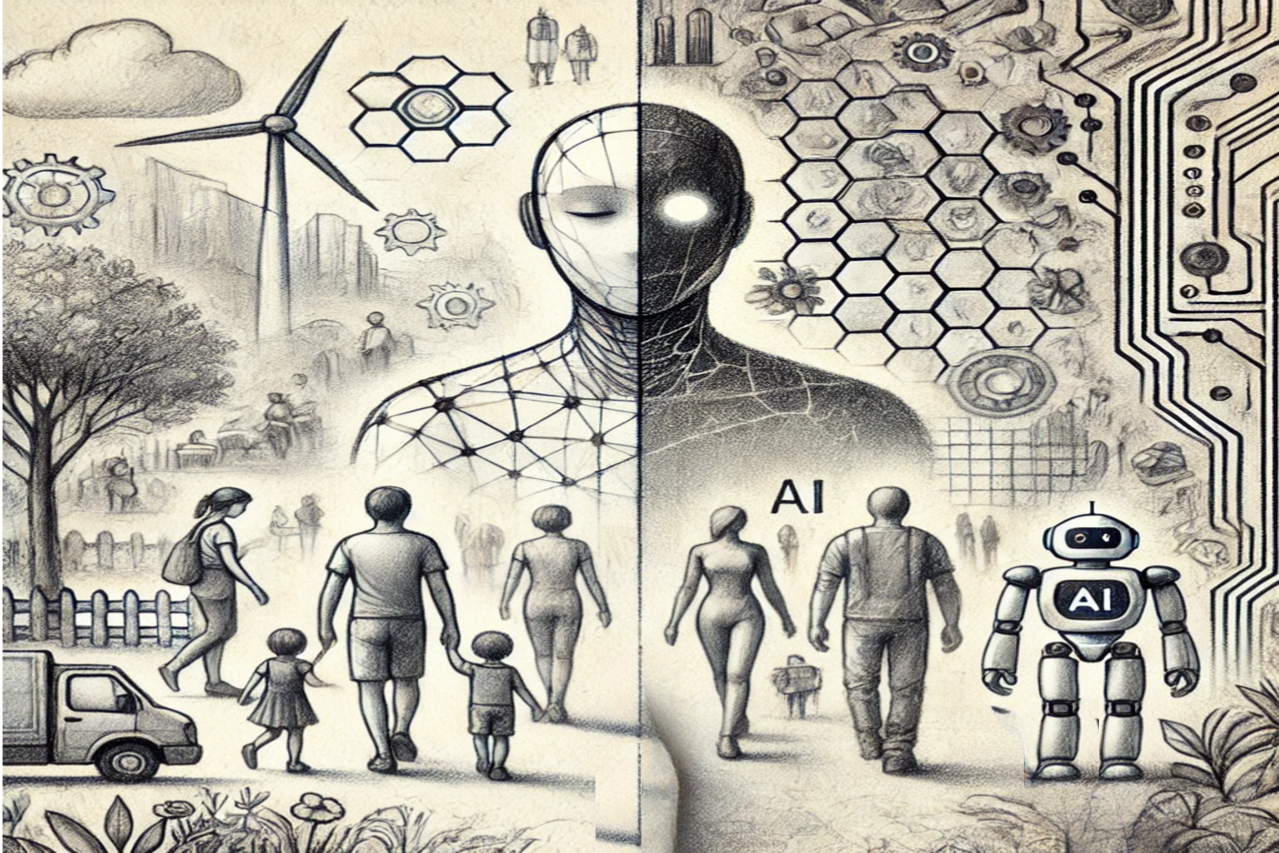As mental health awareness grows, the need for effective diagnostic methods becomes more urgent. Traditional assessments often rely heavily on self-reported symptoms and clinician observations, which can be subjective. However, advancements in artificial intelligence (AI) are changing this landscape. By analyzing vocal patterns, a novel approach that relies on sound patterns often undetectable by the human ear, AI technology offers a promising avenue for diagnosing mental health conditions, including depression, anxiety, and schizophrenia.
Research indicates that the way individuals communicate—through tone, pitch, and rhythm—can provide valuable insights into their mental well-being. Traditional diagnostic practices often overlook these auditory cues, relying instead on self-reports and observational assessments, which can be subjective. However, AI models are now being developed to analyze vocal patterns and identify subtle changes that may indicate the presence of mental health conditions such as depression, anxiety, or schizophrenia.
Understanding the Technology
How AI Analyzes Sound Patterns
AI sound analysis employs various techniques, including machine learning and natural language processing (NLP). AI algorithms trained on vast datasets of audio recordings can discern sound patterns that the human ear might miss. By examining features like voice inflection and speech tempo, these models can identify deviations from an individual’s baseline vocal characteristics.
Researchers have discovered that specific vocal traits—such as tone, pitch, and speed—can provide insights into mental health. For example, individuals with depression often speak in a monotone voice with limited pitch variation, while those experiencing anxiety may exhibit faster speech and a higher pitch.
As more data becomes available, AI systems can continue to improve their predictive capabilities. This adaptability is crucial in a field where the nuances of human emotion and expression can vary widely among individuals
The Science Behind Vocal Cues
Research has demonstrated that various vocal characteristics can correlate with specific mental health conditions:
- Depression: Studies indicate that individuals with depression often exhibit a lack of vocal variety, characterized by a monotone delivery and reduced pitch range. Their speech may be slower, with longer pauses between words(University of Cincinnati)(SpringerLink).
- Anxiety: Conversely, anxious individuals may display heightened speech rates, irregular breathing patterns, and a higher pitch. These vocal markers can serve as early indicators of underlying issues(University of Cincinnati)(SpringerLink).
- Schizophrenia and PTSD: Emerging research also suggests that voice analysis can be applied to more complex conditions, like schizophrenia and post-traumatic stress disorder (PTSD). AI systems are being designed to recognize disorganized speech patterns and changes in emotional tone(ESR Groups Journal)(Frontiers).
Real-World Applications
AI-driven voice analysis is being tested and implemented in various clinical settings, demonstrating its practical applications:
1. Research Studies
Multiple studies have explored the effectiveness of AI in diagnosing mental health disorders through vocal analysis. For instance, researchers at the University of Cincinnati have utilized machine learning algorithms to develop tools that assess voice recordings for signs of anxiety and depression. Their findings suggest that AI can significantly enhance diagnostic accuracy compared to traditional methods.
2. Digital Therapeutics
In addition to diagnostic applications, AI is increasingly being integrated into digital health tools, such as mobile applications and chatbots. These platforms often incorporate voice analysis to provide users with personalized mental health interventions. For example, AI-driven chatbots can adapt their responses based on detected changes in the user’s vocal patterns, offering tailored support.
3. Remote Monitoring
With the rise of telehealth, AI sound analysis can facilitate remote monitoring of patients’ mental health. Wearable devices equipped with voice analysis capabilities can continuously assess emotional well-being, alerting healthcare providers to potential issues before they escalate. This proactive approach can be particularly beneficial for individuals in underserved areas where mental health services may be limited.
Reducing Stigma Around Mental Health
The integration of AI in mental health diagnosis not only enhances diagnostic accuracy but also holds the potential to significantly reduce the stigma associated with mental health issues. By applying technology to analyze vocal patterns and provide objective assessments, AI can help foster a greater understanding of mental health conditions as legitimate medical concerns rather than personal failures.
- Normalizing Mental Health Conversations: As AI tools become increasingly common in mental health assessments, they may help normalize discussions about mental health. When people see technology being utilized to identify and address these conditions, it can shift the perception that mental health is a taboo topic, encouraging more individuals to seek help without fear of judgment.
- Objective Measures: AI provides a scientific basis for diagnosing mental health disorders, moving away from subjective assessments that can vary from clinician to clinician. This objectivity can help demystify mental health conditions, framing them as medical issues that deserve the same attention and care as physical health.
- Inclusion of AI in Mental Health: By incorporating AI into mental health care—just as it is being included in other areas of healthcare—it reinforces the idea that mental health challenges are nothing to be ashamed of. This broader acceptance can encourage individuals to recognize their mental health needs as valid and deserving of professional support, similar to physical health concerns.
- Greater Accessibility: AI can enhance access to mental health assessments, particularly in underserved areas. Knowing they can access support discreetly and efficiently may encourage individuals to address their mental health needs without fear of stigma.
- Educational Opportunities: The rise of AI technologies also provides a unique opportunity for education surrounding mental health. Increased awareness of how vocal analysis can identify mental health issues can lead to a broader understanding of mental health itself, fostering empathy and reducing stigma.
Barriers to Implementation
Despite the potential benefits of AI in mental health diagnosis, several barriers must be addressed:
1. Data Privacy and Security
The sensitive nature of mental health data necessitates stringent privacy protections. Patients may be hesitant to share voice recordings due to concerns about how their data will be used. Establishing clear protocols for data collection, storage, and usage is essential to build trust.
2. Algorithmic Bias
AI models are only as good as the data they are trained on. If the training datasets lack diversity, the resulting algorithms may exhibit bias, leading to misdiagnosis or inadequate care for underrepresented populations. Researchers must ensure that datasets are comprehensive and inclusive to mitigate this risk.
3. Acceptance Among Clinicians
Integrating AI into mental health care requires buy-in from clinicians. Many professionals may be skeptical of AI’s ability to accurately diagnose conditions or may feel that it undermines the human element of care. Ongoing education and collaboration between technologists and mental health practitioners are crucial to fostering acceptance.
Future Directions
As AI technology continues to evolve, its applications in mental health diagnosis are likely to expand:
1. Interdisciplinary Collaboration
The intersection of AI with psychology, psychiatry, and neuroscience is crucial for advancing this field. Collaborative research efforts can enhance the development of AI tools that are both effective and sensitive to the complexities of mental health.
2. Personalized Treatment Plans
AI’s capacity for data analysis may enable the creation of personalized treatment plans tailored to individual needs. By continuously monitoring vocal patterns, AI could help clinicians adjust therapies in real-time, improving patient outcomes.
3. Global Reach
AI-driven mental health tools have the potential to reach a global audience, especially in regions with limited access to mental health care. By providing remote diagnostics and support, AI can help bridge the gap in mental health services across diverse populations.
AI’s role in diagnosing mental health conditions through sound analysis is an exciting development in the field of mental health care. By utilizing machine learning to analyze vocal cues, we can improve diagnostic accuracy, facilitate earlier intervention, and expand access to care. However, it’s essential to navigate the challenges of privacy, bias, and the human element thoughtfully. As we move forward, collaboration among technologists, clinicians, and patients will be crucial.




